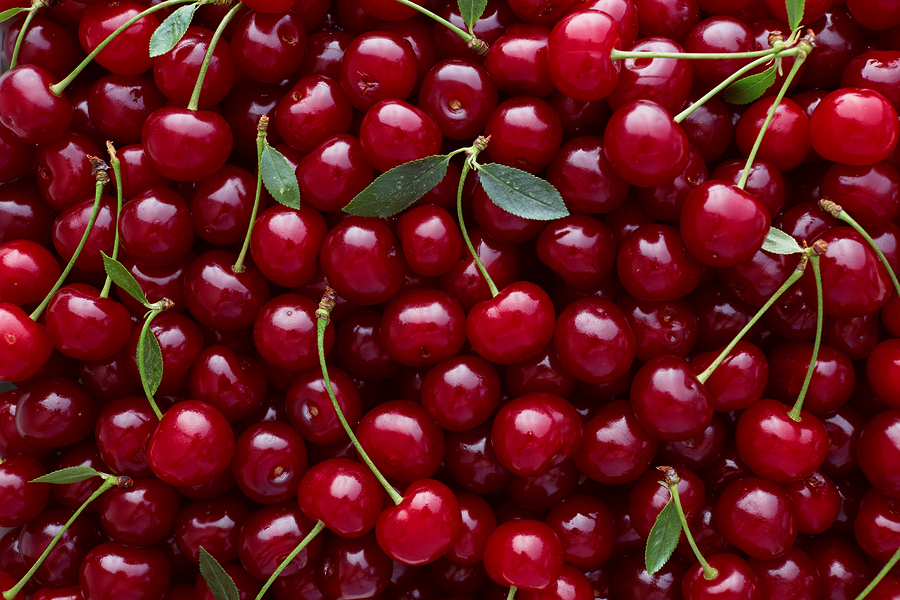Succulent cherries, both sweet and tart, provide wonderful health benefits. They contain the antioxidant vitamin C along with substances called anthocyanins, both of which help scavenge those pesky free radicals that cause damage to cells (known as oxidative stress). Anthocyanins, which give cherries their deep crimson color, also play a role in reducing cancer risk. Another powerful antioxidant in cherries is quercetin, which has a variety of health promoting properties.
Quercetin belongs to a family of plant compounds called flavonoid polyphenols, which help reduce inflammation. Among these compounds, quercetin is the one that demonstrates the strongest impact on immunity and inflammation at the cellular level, helping the immune system more effectively respond to cellular stress. Quercetin also helps the body put up a stronger defense against substances that promote inflammation in the skin, even in people who don’t get much relief from conventional treatments. This makes quercetin containing foods, such as cherries, other dark berries and onions, potent healing foods for skin conditions with a strong inflammatory component, such as eczema and psoriasis.
Enjoy cherries as a healthy snack or take the time to remove the seed and mix cherries into smoothies, yogurt, or oatmeal. Whether you are drinking lightly sweetened cherry juice or eating dried cherries, you’ll get a similar amount of nutrients. Frozen cherries have fewer antioxidants and canned cherries have the least.
References
- Weng, Zuyi et al. “Quercetin Is More Effective than Cromolyn in Blocking Human Mast Cell Cytokine Release and Inhibits Contact Dermatitis and Photosensitivity in Humans.” Ed. Christian Taube. PLoS ONE 7.3 (2012): e33805. PMC. Web. Accessed: 3 June 2018.
- Chirumbolo, S. “Quercetin as a Potential Anti-Allergic Drug: Which Perspectives?” Iranian Journal of Allergy, Asthma and Immunology,[S.l.], p. 139-140 (Jun. 2011). ISSN 1735-5249. Available at: http://ijaai.tums.ac.ir/index.php/ijaai/article/view/304. Accessed: 03 Jun. 2018.
- Antioxidants.org. “Quercetin.” Accessed 3 June 2018: http://www.antioxidants.org/quercetin

